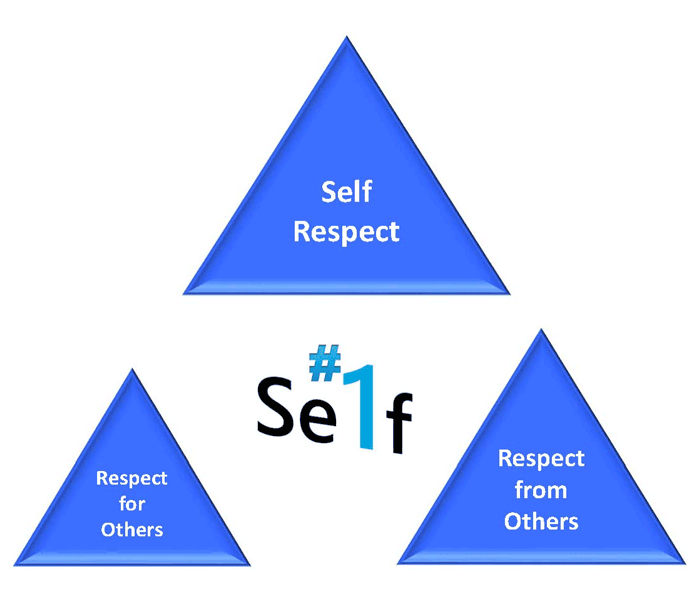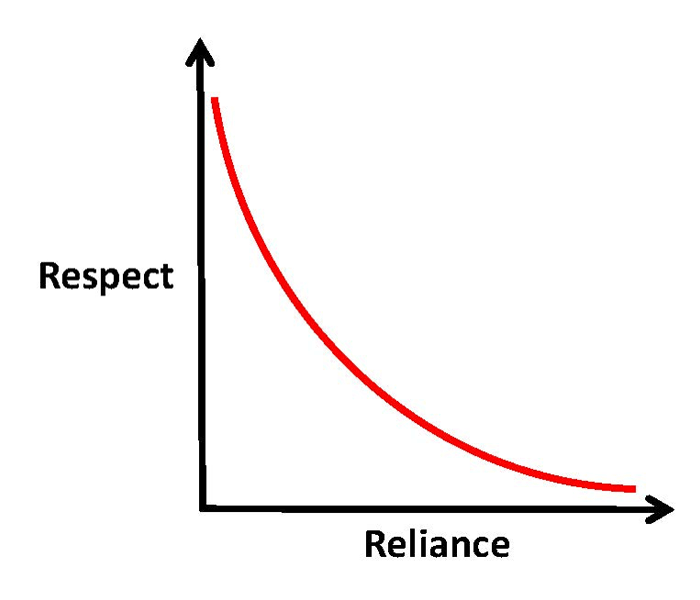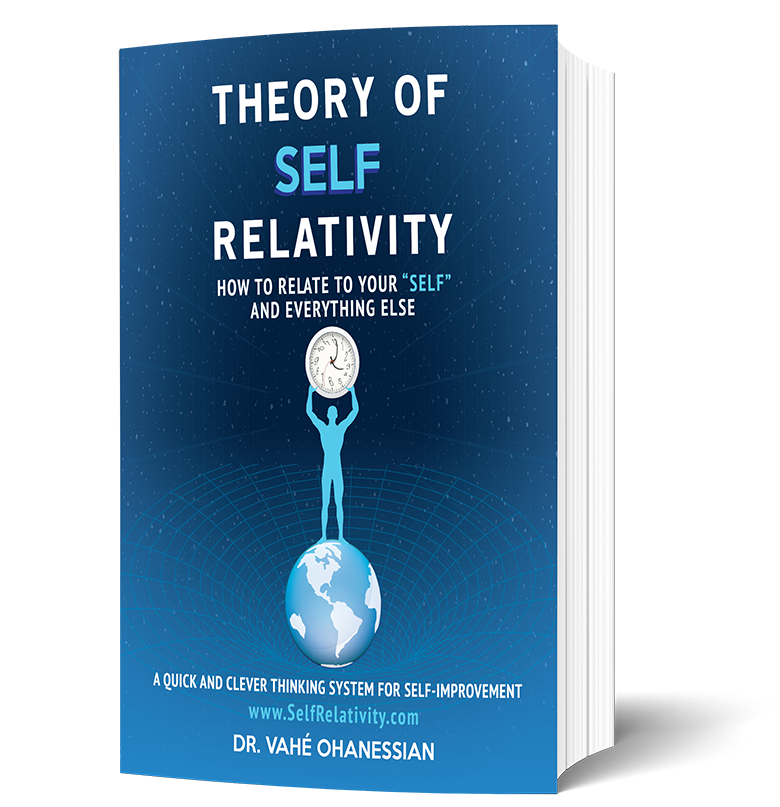Respect
Theory of Self-Relativity defines “respect” as “to acknowledge, show interest and to value a person’s thoughts, feelings and existence, even though one might not be in agreement with it.”
We cannot demand respect from others because if our self-identity and our self-worth is dependent or reliant on others; we do not have a leg to stand on to demand respect. Likewise, respect is not earned because to earn respect means we have to be validated and approved by others. Both demanding and earning respect are one-sidedly dependent on the need to have a relationship with others where the interaction is relative to the dominance of one side.
Respect is neither earned nor demanded; respect is required and enforced.
Theory of Self-Relativity’s “self-equation” works best and is in most stable equilibrium when both sides of the equation are balanced. Enforcement of borders and boundaries consequently creates equilibrium because when we learn to enforce respect, we are maintaining the stability of the Self side of the equation with others. We are not forcing respect onto others; we are enforcing respect that is required for others to deal with us.
Don’t earn, demand or force respect…require and enforce respect.
When we enforce our borders and boundaries, we are enforcing respect because we are not dependent or reliant on others. When we are not dependent or reliant on others, we do not have to be in interaction or we are not obligated to have a relationship with others in an unbalanced or unfair setting. When we are not dependent or reliant on others, our borders and boundaries are defined because we are self-sufficient and if others don’t respect us, we can continue our life without having to live with their unfair expectations or impractical demands. Although borders and boundaries are good to enforce respect, borders and boundaries should not be rigid; they should have flexibility and selective-permeability which means our flexibility and adaptability will allow us to adjust to others while maintaining the balance of the self-equation. Likewise, when others enforce respect, we will be able to evaluate their terms of interaction hence adjust our borders accordingly. If neither side could adjust, then interaction with that particular individual(s) should be minimized or ended and not compromised unfairly by one-side.
By us learning to enforce our borders and boundaries which could only be accomplished by us remaining self-sufficient and by living our life from the inside-out; we will not only be respected by others but we will also know how to respect others. Self-sufficiency, setting borders and boundaries and lack of dependency and reliance on others creates a low stress and low anxiety personal existence which puts us not only in harmony within our own Self but also in balance and harmony with others. Enforcing respect does not create a relationship based on fear; it creates and strengthens love in a relationship. Respect when enforced, results from lack of need and dependency on others and when need or dependency on others is minimized or non-existent, interactions and relationships with others become genuine, symbiotic and additive. For example, in case of romantic-relationships, when the relationship is not based on dependency and neediness; “love” becomes harmonious rather than unfairly compromising or sacrificial.
It is better to be respected than to be loved; because true love cannot exist without respect.
According to Theory of Self-Relativity; respect is one of the three most important characteristics for a loving relationship. These characteristics are known as “RSP” which stands for Respect, Support and Predictability.
- Respect is important to keep the equilibrium between the parties in a relationship even if in disagreement with each other.
- Support is important in creating security in the relationship even though the parties involved in the relationship might not be in agreement of each other’s perspectives.
- Predictability is perhaps the most overlooked yet most important aspect of a relationship because predictability ensures stability so that the relationship could advance further and become stronger.
In order for us to be able to apply and enforce certain characteristics and requirements on others, we should first be able to do the same with our own Self. In order for us to know how to respect and therefore love others, we must first learn to respect and love our own Self. This is why respect is best represented as another one of Theory of Self-Relativity’s “Trilateral-Relativities.” “Trilateral-Respect” just like other trilateral-relativities presented in the book represents “Self-Respect” as the most important form of respect.

As much as it is important to have others respect us and for us to respect others; neither will be accomplished if we don’t know how to have self-respect. When we establish internally-derived self-identity and self-worth which could only be achieved by minimizing dependency and reliance on others; it is only then that we can establish self-respect. And when we establish self-respect, it is only then that we will be able to have and receive mutual-respect with others. Mutuality of interpersonal attributes such as mutual-respect is integral to keeping the self-equation between the Self and others in balance and harmony. When we learn to have self-respect and when we enforce respect from others, we will then live in a balanced self-equation because we won’t be reliant on others. Having self-respect and being self-reliant enables us to interact with others based on our own interest and not based on our neediness; therefore, we automatically begin to respect others. When we interact with others based on interest and caring and not based on our own neediness, respect becomes a byproduct of our mutuality.
Respect for others is a byproduct of our interest and caring for them.
According to Theory of Self-Relativity, respect is inversely-proportional to dependency and reliance on others. The more needy, dependent or reliant we are on others, the less respect we will get from others because dependency and reliance disables us from setting and enforcing proper borders and boundaries.

Because respect is inversely-proportional with dependency and reliance; disrespect is directly proportional to dependency and reliance hence, when as an adult we become reliant on others, we open the door wide to being disrespected. Disrespect is a direct indicator of lower personal-value as perceived by others. When we become dependent and reliant on others and when we do not know how to establish our own self-worth and self-identity from within; we place our Self in a position where we will be less desirable, more disposable and more frequently disrespected. This is why self-reliance and independence are one the 10-Commandments for self-improvement.
A strong self will know how to cultivate strength in others but a weak self will always be dependent and reliant on others.

